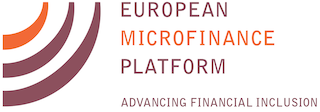 Many families in low- and middle-income countries send their kids to low-cost private schools because the government is not meeting the need. However, many of these schools are not registered as businesses and don’t keep good records, so it is hard for them to borrow from banks to improve their facilities. Meanwhile, about one in five school-aged children – 260 million worldwide – are not in school.
Many families in low- and middle-income countries send their kids to low-cost private schools because the government is not meeting the need. However, many of these schools are not registered as businesses and don’t keep good records, so it is hard for them to borrow from banks to improve their facilities. Meanwhile, about one in five school-aged children – 260 million worldwide – are not in school.
Varthana is a lender in India that specializes helping schools expand. Its loans are often in the range of USD 20,000 to USD 100,000. The firm has developed a track record and so now is able to acquire wholesale funding relatively easily. But the funding remains relatively expensive. Sometimes banks see schools as charitable endeavors, and thus poor credit risks. In fact, schools in India must be set up as trusts, so they don’t have the tax returns that banks expect to receive from potential borrowers. Another challenge is that the people who operate schools are often first-time entrepreneurs who lack the skills needed to select appropriate sources of funding and follow through with the application process.
However, the panelists discussing this topic today at European Microfinance Week argue that lending to schools is both very possible and very important to help low-income families increase their long-term income prospects. Meanwhile, increased levels of schooling have been linked to better health outcomes as well as taking better care of the environment.
Among the reasons to invest in schools is that families often are slow to switch schools. That means that when a school starts to have problems, there is usually time to address the issues before it loses too many students, hence before it loses too much of its income. Lenders to schools also report success cross-selling loans to students’ families as well as enrolling older students in savings programs.
This report is part of a sponsored series on European Microfinance Week 2023, which began yesterday in Luxembourg and is also accessible online. MicroCapital has been engaged to promote and report on the event each year since 2012. Stay tuned over the coming days for more news from the conference! Learn more about European Microfinance Week at https://www.emw2023.eu/.
Additional Resources
European Microfinance Week 2023 homepage
https://www.emw2023.eu/
Global Schools Forum homepage
https://www.globalschoolsforum.org/
Oikocredit press release on its education partnership with Opportunity International
https://www.oikocredit.coop/k/en/n171/news/view/349005/235625/oikocredit-and-opportunity-international-collaboration-will-support-affordable-quality-education-for-under-served-families-interview.html
Opportunity Bank Uganda homepage
https://opportunitybank.co.ug/
Opportunity EduFinance homepage
https://edufinance.org/
MicroCapital coverage of European Microfinance Week since 2012, including the European Microfinance Award
https://www.microcapital.org/category/european-microfinance-week/
Similar Posts:
- MICROCAPITAL BRIEF: Opportunity EduFinance Partners with 7 FSPs to Invest in Education in Africa, India
- MICROCAPITAL BRIEF: Standard Life Organization Borrows $3m from Oikocredit to Invest in MSMEs, Education in Nigeria
- SPECIAL REPORT: Yikri of Burkina Faso Wins $110k European Microfinance Award for Progress Toward Food Security #EMW2023
- MICROCAPITAL BRIEF: Baobab+ Borrows $1.3m from Oikocredit to Boost Household Access to Technology, Solar Energy in Rural Côte d’Ivoire
- MICROCAPITAL BRIEF: Oikocredit Lends $3.3m to Witti Finances to Support SMEs in Côte d’Ivoire
